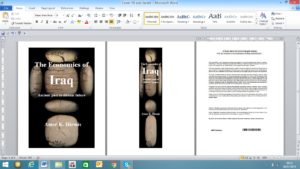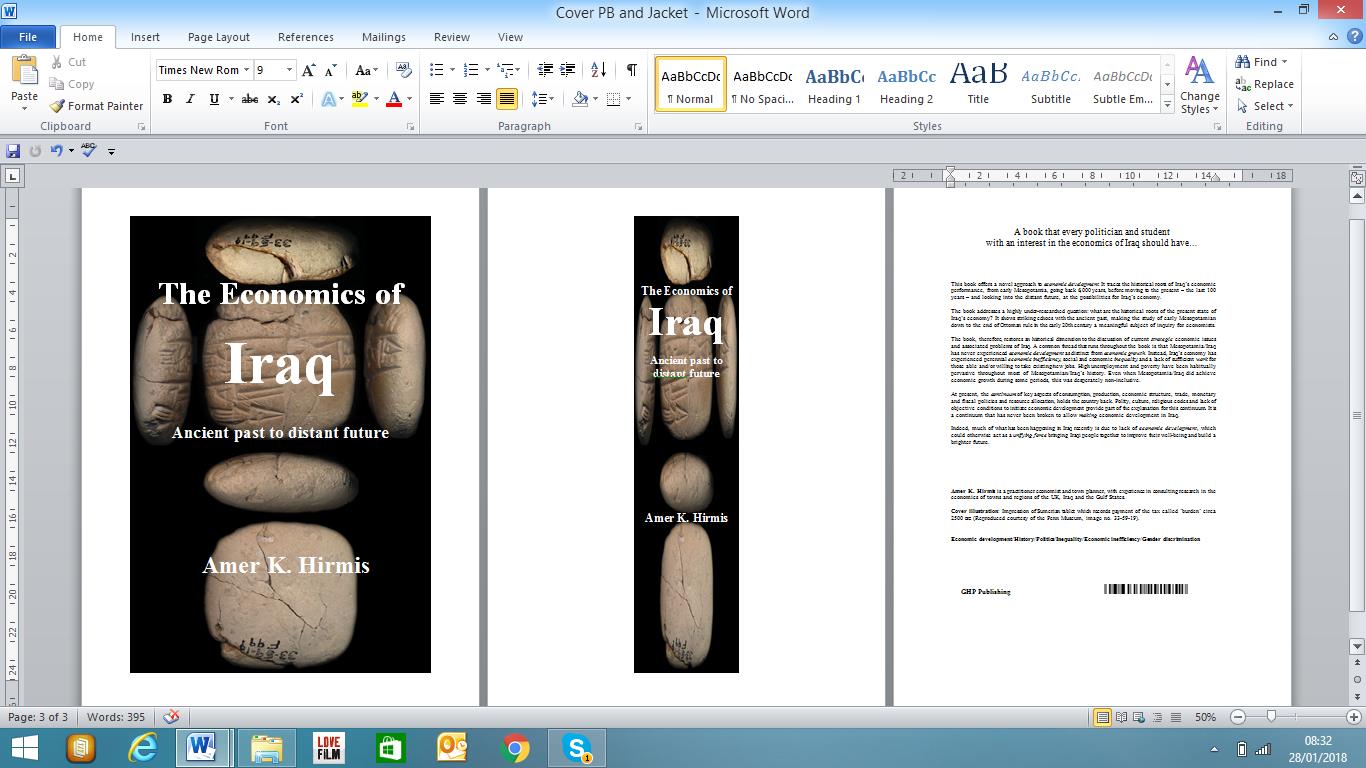
New Book Traces Historical Roots of Iraq’s Tumultuous Economy
Meticulously researched and written by Dr Amer K. Hirmis the book takes readers 6000 years back to early Mesopotamian polity, culture, and religious codes which shaped the economy, and continue to shape much of the body of Iraq’s polity, economy and society today.
With a novel approach to economic development, Iraq’s strengths and its fierce societal discrimination are rigorously examined, and a path for the future is suggested that would allow Iraq to deliver economic development and functional democracy.
Contact:
Grosvenor House Publishing Limited
Email: info@grosvenorhousepublishing.co.uk
Telephone: +44 (0) 208 339 6060
The Book is available now:
Hard Back ISBN: 978-1-9998241-0-5
Paper Back ISBN: 978-1-9998241-1-2
E-Book ISBN: 978-1-9998241-2-9
Synopsis:
Much of what happens in modern Iraq in its economy, polity, culture and religious codes has been shaped by early Mesopotamian culture, religious codes and tradition. Recast to meet the needs of a particular era, the Mesopotamian heritage has transcended geography and local cultures.
Economic inefficiency, inequality and lack of sufficient employment are common threads that run throughout Mesopotamian/Iraqi economic history. The persistence of poverty, high unemployment, conscious discrimination against women, and a polity dictating blind allegiance and obedience from the subjects to the ruler, denied the Iraqis achieving economic
development, the ultimate aim of which is the sustained improvement of the well-being of the
people. Even when economic growth was attained, it was desperately non-inclusive.
This book examines Iraq’s economy over the past 100 years. It establishes the historical roots in the consumption patterns, nature of the producers, the economic structure, trade, monetary and fiscal policy and resource allocation. In all these areas the echoes from the ancient past are striking. The principles of Sumerian taxes are still applied in present-day Iraq.
Indeed, economic thought and ideas as well as polity across ‘The Land’ under Mesopotamian empires, has shaped politics and economics over the ensuing centuries.
Looking ahead, the book proposes a set of conditions, which will need to be created for Iraq to achieve economic development and functional democracy, in the distant future.
From the Author
A key objective in writing this book was to break the silence and open the doors to discussions of the current strategic economic issues and associated problems of Iraq, In order to do that, we need to revisit Iraq’s history objectively, and learn lessons for delivering a brighter future for Iraq. Many of Iraq’s current economic and social problems can be attributed to lack of economic development, which could be a unifying force, bringing Iraqis together to deliver a brighter future in the long-run.
The Author:
Dr Amer K. Hirmis is a practitioner economist and town planner.
Over the past 30 years, Amer has worked as an economic advisor for a number of private and public sector organisations in the UK, and on major strategic master planning projects in London and the Gulf states. During 2009–11, Amer worked as Senior Development Planning Advisor to the Ministry of Planning – Iraq, as part of a programme of ‘reconstruction and peace-building’ funded by the ‘donor countries.’
Amer practices economics and town planning in the UK.








Comment here